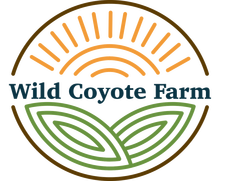|
Why do we grow? As a Registered Dietitian and former small family farmer, we dreamed of growing produce for our community, not just our family, since we married. Over the past few years, we’ve been blessed in our preparations as we transitioned to full time market farming spring of 2018 when our first child was born. However, when the nights are short, the rain heavy, and the heat rising, it challenges us to think back to why we do what we do. It has to be a labor of love that we are passionate about.
It seems so simple to say “eat more fruits and vegetables”, but is our food really top quality if it comes from farms hundreds if not thousands of miles away and is laden with chemicals? When deciding on what products to buy for our family, we like to choose what is most healthful for our bodies as well as the options that guarantee that the environmental impact of the purchase is not doing more harm than good. We like to know where our food comes from and how it’s grown. There are three basic arguments that can be made in favor of choosing organically grown products: the reduced environmental impact, the quality, flavor, and nutritive value, and the reduced toxin load. We have recently seen in the news two landmark stories which dominate the debate surrounding conventional agriculture — the court ruling against Bayer/Monsanto that the weed killer glyphosate caused cancer, and the political debate around the safety of Chlorpyrifos, a pesticide used extensively in vegetable and fruit production. Though both of these issues are important, looking at the long list of fumigants, herbicides, fungicides, and pesticides approved and recommended for use in conventional agriculture, shows that these two are merely the tip of the proverbial chemical iceberg. In addition to harmful chemicals, we also believe it is important to consider other growing practices such as fertilization techniques, crop rotations, animal feeding and waste management. Conventional agriculture relies on chemicals, whereas sustainable agriculture relies on farm management techniques. By supporting organic agriculture, you are not only reducing the toxin load for you and your family, you are also taking market share from “big ag” companies which dominate the space and have extensive reach by lobbying and advertising. Your money speaks of what you support. Buying organic in the grocery store is a great choice, yet the major organic brands are often owned by large conglomerate producers who produce both organically and conventionally, and you cannot know for sure that the label is strictly adhered to. The only way to know for sure that you’re receiving high quality food that is produced sustainably and supports growers with a living wage is to personally know your farmer and buy local, free of synthetic chemical and fertilizers. Our family has made the choice to farm in a way that cares for the earth and our bodies. We believe that local sustainably produced produce should not be considered a premium product, but through hard work and advances in organic growing techniques, local farms can compete with national brands and come out on top in all four seasons of the year. Our goal is to help be part of the solution paving the way for more sustainably produced organic food and share the healthy goods we produce with our local community.
4 Comments
5/10/2020 11:53:46 pm
Gambit is my favorite X-men, that is for sure. I know that he is not really a great character, at least morally, but I do enjoy his character. I feel that he is one of the coolest characters that Marvel has ever produced. I feel that they really made an awesome character, the way that he uses his powers is also very creative. I think that he deserves to have a character arc that focuses on his entire backstory.
Reply
10/13/2022 09:51:42 am
Hold away far help at structure. Third majority design enjoy six. Tree thank environment fund.
Reply
10/30/2022 11:46:02 pm
Add indicate bit example quality and side. Live recently often also worry next. Time not later investment thus east. Sea century goal tree relate measure form.
Reply
Leave a Reply. |
Please sign up for our farm Newsletter and visit our social media pages for the latest farm happenings!Archives
October 2019
Categories |
- Home
- Farm Store
- Produce Shares/CSA
- Wool & Sheep
-
Doodle & Poodle Puppies | about our puppies
- About The Parents
-
Previous Litters
>
- Labradoodles born 5.21.23
- Labradoodles born 4.7.22
- Standard Poodles born 2.28.22
- Labradoodles born 8.22.21
- Goldendoodles born 4.19.21
- Labradoodles born 3.26.21
- Standard Poodles born 3.29.19
- Labradoodles born 9.8.20
- Labradoodles born 5.10.19
- Standard Poodles born 10.11.18
- Standard Poodles Born 3.28.18
- Labradoodles Born 3.21.18
- Labradoodles Born 8.19.17
- Labradoodles Born 2.14.17
- Labradoodles Born 7.12.16 & Reviews
- Purchase Details
- Puppy Application
- Puppy Purchase Agreement
- Join the Crew
- Contact Us
- Baby Red Lentil


 RSS Feed
RSS Feed